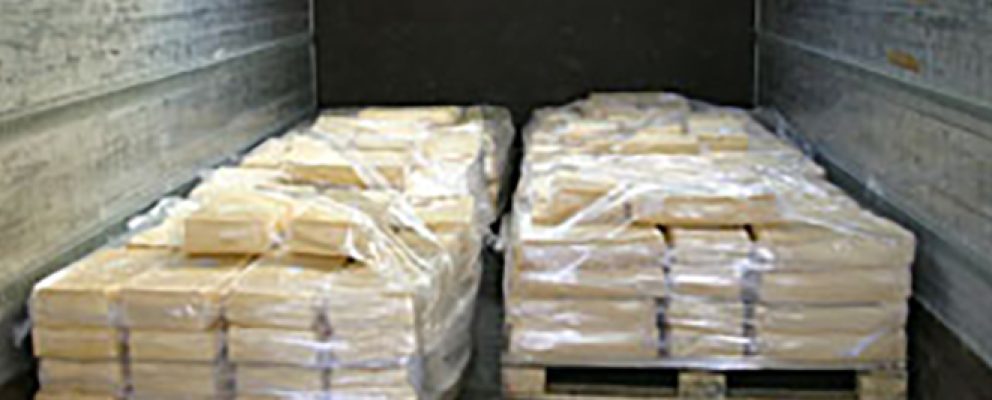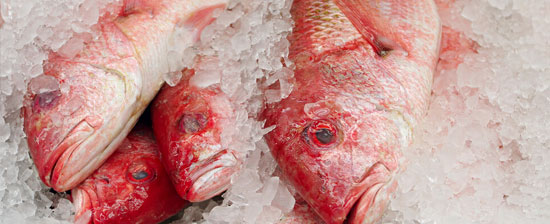What Is Refrigerated Transport?
Refrigerated transport is an irreplaceable link in the supply chain. Effective transportation of perishable goods in a specific time frame is vital today.
A refrigerated transport system is a specifically designed temperature-controlled truck or van. These vehicles feature built-in refrigeration systems that continuously regulate the temperature. The insulated refrigerated superstructure maintains the quality of the goods being shipped with the assistance of monitors that ensure proper temperatures.
How Refrigerated Trucks Work
Refrigerated trucks (and other forms of transport) are not new; the first successful refrigerated truck arrived in 1925. However, technological advances have refined the refrigerated transportation system.
Refrigerated trailers are not intended to cool the product but to maintain the product’s temperature at the time of loading to a stated specification.
The refrigeration unit is made of three main components. These components are,
- Evaporator coil
- Compressor (which powers the evaporator coil).
- Small diesel engine (which powers the compressor)
It is worth noting that refrigeration does not add cold air to the trailer. It removes heat from the air inside the trailer. The change happens as fluctuations in air pressure lead to airflow. This causes air from inside the trailer to move across the evaporator coil. The coil absorbs heat and then circulates the cooler air throughout the trailer.
Temperatures in Refrigerated Vehicles
There are three temperature designations for refrigerated vehicles
- Frozen: Must be kept at -23 ºC
- Refrigerated: Typically kept at 0-2ºC
- Maintained or heated: In winter, the refrigeration unit can operate to keep the temperature of goods or to add heat
Common Types Of Goods That Require Refrigerated Transport Services
- Perishable food products, including meat, dairy, frozen goods, seafood, as well as fresh vegetables and fruits need specific temperature ranges. These require a controlled climate to ensure they remain unspoiled and fit for consumption.
- Pharmaceutical products are manufactured to exacting standards. In order to be sure the various goods are safe and effective, the correct temperature is vital. Some products can experience changes when kept in unsuitable temperature ranges. These changes may reduce the effectiveness of the drug or cause illness.
- The floral industry depends on temperature control to maintain cut flowers‘ freshness and live plants‘ health. Excessive heat will wilt and ruin cut flowers and could damage or kill live plants.
- Live animals or insects may not immediately come to mind when considering refrigerated transport. However, shipments of honeybees must be kept in cool locations because of the heat they produce. Likewise, animals from arctic regions, such as penguins, need a specific temperature range to survive being moved.
- Biotech products such as blood, organs, or tissues need precision when it comes to transportation temperatures. There is minimal margin for error with these products.
- Cosmetic and beauty industry goods need specific temperature ranges to maintain the products’ usefulness and safety. Heat can cause chemical reactions that alter the composition of the products.
- Antiques and fine art products often require highly specific conditions when transported. Additionally, humidity can cause significant damage to fragile works of art.
Example Scenario Of Refrigerated Transport For Businesses:
Lauren is opening a florist shop near Broome. She has contacted numerous flower growers across Western Australia to learn her options. A company in Albany has her favourites and the best prices. Additionally, they will deliver purchases to Lauren via Bossna Logistics refrigerated transport. This guarantees she will have the freshest flowers arriving regularly and in the best condition because of the refrigerated transport.
How Do I Know I Need Refrigerated Transport Services?
In many cases, refrigerated transport is an obvious necessity for shipping your products safely. For example, if you deal with perishable foods like meat and vegetables, the quality of your goods depends on maintaining a consistent temperature.
There are a number of other products that do not automatically come to mind when considering goods that need refrigerated transport.
- Pharmaceutical items like eye drops, antibiotics, and vaccines are typically considered in this category. However, other products like laboratory machines, blood, and MRI machines must be cared for in controlled environments.
- Cosmetics, especially the preservative-free variety, must stay within a specific temperature range to ensure safety and effectiveness. In addition to beauty products, things like deodorant, sunscreen, and soap must be held at a particular temperature.
- Biotechnical products have particular temperature zones. The need for precise temperature is critical when transporting life-saving organs or other tissue.
No matter what products your company needs to move, at Bossna Logistics, we pride ourselves on expert care and delivery of your goods. To learn more about the many ways we can simplify your shipping, feel free to contact us.







